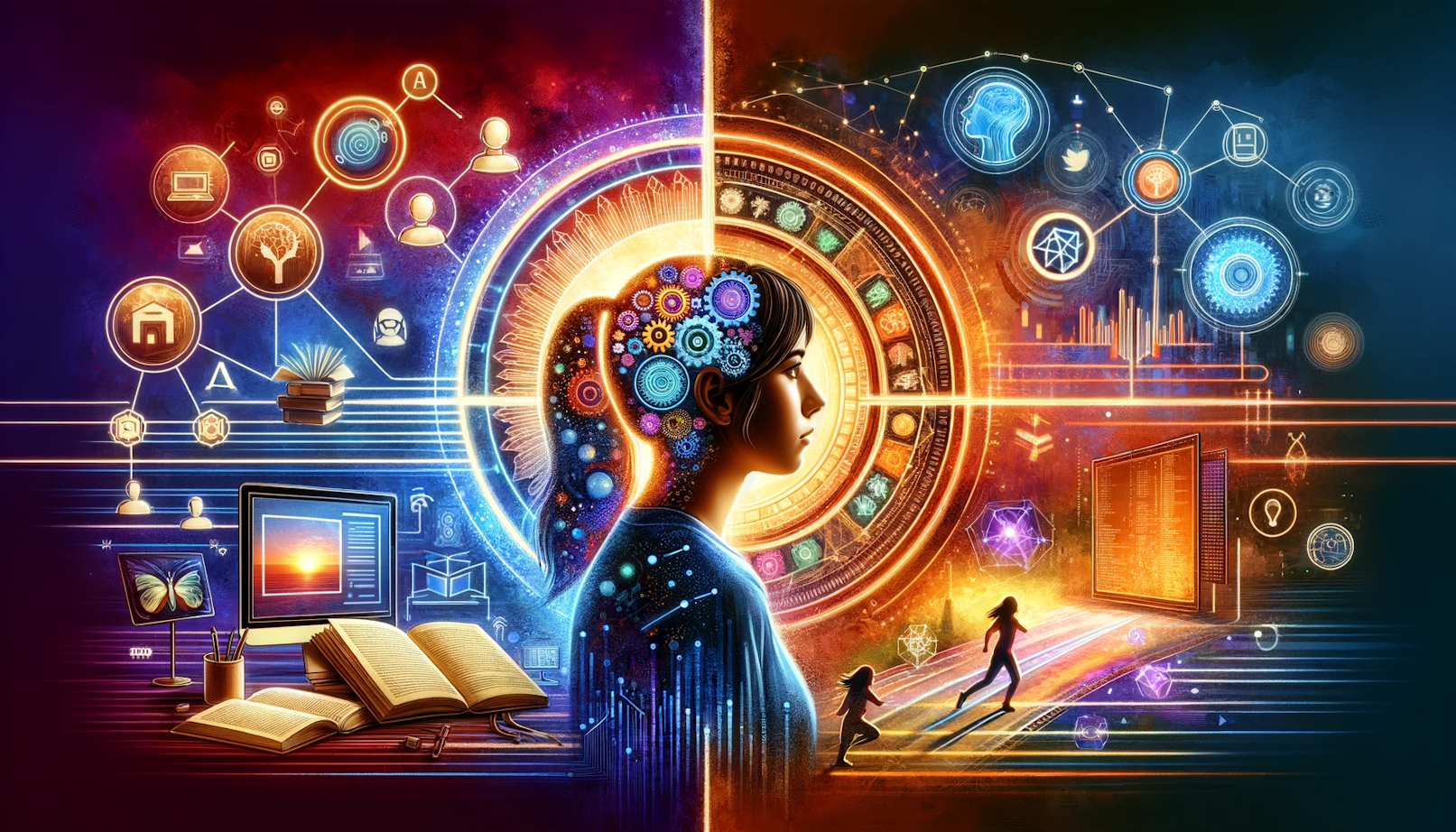The Rise of Artificial Intelligence: Transforming the Future
Artificial Intelligence (AI) has rapidly evolved from a futuristic concept to an integral part of our daily lives. From virtual assistants like Siri and Alexa to advanced machine learning algorithms driving innovations in healthcare and finance, AI is reshaping industries and redefining the way we interact with technology.
Understanding AI: What Is It?
AI refers to the simulation of human intelligence in machines that are programmed to think and learn like humans. These systems can perform tasks such as visual perception, speech recognition, decision-making, and language translation. The core idea is to enable computers to carry out complex tasks without constant human intervention.
Key Components of AI
- Machine Learning: A subset of AI that involves training algorithms on large datasets to recognize patterns and make decisions.
- Natural Language Processing (NLP): Enables machines to understand and interpret human language.
- Robotics: Combines AI with mechanical engineering to create autonomous machines capable of performing specific tasks.
The Impact of AI Across Industries
The transformative power of AI is evident across various sectors:
- Healthcare: AI-driven diagnostic tools are improving accuracy in detecting diseases, while personalized medicine is becoming more accessible through predictive analytics.
- Finance: Algorithms are optimizing trading strategies, detecting fraud, and offering personalized financial advice based on user data.
- Transportation: Autonomous vehicles are revolutionizing how we think about travel, promising safer roads and more efficient logistics networks.
- E-commerce: Retailers use AI for personalized recommendations, inventory management, and enhancing customer service experiences.
The Ethical Considerations
The rapid advancement of AI also brings ethical challenges. Concerns about privacy, job displacement due to automation, and algorithmic bias need careful consideration. Ensuring that AI systems are transparent, fair, and accountable is crucial for building trust among users.
The Path Forward
The future of AI holds immense potential but requires a balanced approach that considers both innovation and ethical implications. Collaboration between technologists, policymakers, ethicists, and the public will be essential in shaping an AI-driven world that benefits everyone.
As we continue to explore the possibilities of artificial intelligence, it is clear that this technology will play a pivotal role in shaping our future. By embracing its potential responsibly, we can harness its power for positive change across society.
8 Common Questions About Artificial Intelligence: Understanding AI, Its Applications, and Ethical Considerations
- What is artificial intelligence (AI) and how does it work?
- What are the different types of AI technologies?
- How is artificial intelligence being used in healthcare?
- What are the ethical implications of AI development?
- Can AI replace human jobs in the future?
- How do machine learning and deep learning relate to AI?
- What are some examples of popular AI applications in everyday life?
- What measures are being taken to address concerns about AI bias and discrimination?
What is artificial intelligence (AI) and how does it work?
Artificial Intelligence (AI) refers to the development of computer systems that can perform tasks typically requiring human intelligence. These tasks include understanding natural language, recognizing patterns, solving problems, and making decisions. AI works by using algorithms and models that allow machines to learn from data. This learning process involves training the system with large datasets so it can identify patterns and make predictions or decisions based on new inputs. Machine learning, a subset of AI, enhances this capability by enabling systems to improve their performance over time without being explicitly programmed for each task. Through these methods, AI systems can simulate aspects of human cognition, leading to applications ranging from virtual assistants to complex data analysis tools in various industries.
What are the different types of AI technologies?
Artificial Intelligence (AI) encompasses a diverse range of technologies, each with unique capabilities and applications. The primary types of AI technologies include narrow AI, general AI, and superintelligent AI. Narrow AI, also known as weak AI, is designed to perform specific tasks, such as voice recognition or image classification, and is prevalent in applications like virtual assistants and recommendation systems. General AI, or strong AI, refers to machines that possess the ability to understand, learn, and apply intelligence across a wide range of tasks at a level comparable to human cognition; however, this type of AI remains largely theoretical at present. Superintelligent AI goes beyond human intelligence in virtually every aspect and represents a hypothetical future where machines surpass human cognitive abilities. Additionally, within these broad categories are various subfields such as machine learning, which focuses on algorithms that allow systems to learn from data; natural language processing (NLP), which enables machines to interpret and respond to human language; and computer vision, which allows computers to interpret visual information from the world. Each type of technology plays a critical role in advancing the capabilities of AI systems across different industries.
How is artificial intelligence being used in healthcare?
Artificial intelligence is revolutionizing healthcare by enhancing diagnostics, personalizing treatment plans, and improving patient outcomes. AI algorithms can analyze vast amounts of medical data to identify patterns and predict disease progression more accurately than traditional methods. For instance, AI-powered imaging tools assist radiologists in detecting anomalies in X-rays and MRIs with greater precision. Additionally, AI is used to develop personalized medicine by analyzing genetic information to tailor treatments to individual patients. In hospitals, AI systems optimize administrative workflows, reducing the burden on healthcare professionals and allowing them to focus more on patient care. Overall, AI is driving significant advancements in healthcare by making processes more efficient and treatments more effective.
What are the ethical implications of AI development?
The ethical implications of AI development are vast and complex, touching on issues such as privacy, bias, accountability, and the potential for job displacement. As AI systems become more integrated into decision-making processes, there is a growing concern about the transparency and fairness of these algorithms. Bias in AI can lead to discriminatory outcomes if not addressed properly during the development phase. Additionally, the use of AI in surveillance and data collection raises significant privacy concerns, as individuals’ personal information could be exploited without their consent. The automation of jobs also poses ethical questions about the future workforce and economic inequality. Ensuring that AI technologies are developed with ethical considerations in mind is crucial for fostering trust and ensuring that these advancements benefit society as a whole.
Can AI replace human jobs in the future?
The question of whether AI can replace human jobs in the future is a topic of significant debate. While AI has the potential to automate routine and repetitive tasks, leading to increased efficiency and productivity, it is unlikely to completely replace human jobs. Instead, AI is expected to transform the nature of work by augmenting human capabilities and creating new opportunities that require different skill sets. Many industries will see a shift where AI handles data-driven tasks, allowing humans to focus on roles that require creativity, emotional intelligence, and complex decision-making. Ultimately, the future workforce will likely involve a collaboration between humans and AI, emphasizing the importance of reskilling and adapting to emerging technological landscapes.
How do machine learning and deep learning relate to AI?
Machine learning and deep learning are integral subsets of artificial intelligence (AI), each playing a crucial role in its development and application. Machine learning involves training algorithms to recognize patterns and make decisions based on data, enabling systems to improve their performance over time without explicit programming. Deep learning, a more advanced subset of machine learning, uses neural networks with multiple layers to analyze complex data structures. This approach mimics the human brain’s functioning, allowing for more sophisticated tasks such as image and speech recognition. Together, these technologies drive AI’s ability to perform tasks ranging from simple automation to complex problem-solving across various industries.
What are some examples of popular AI applications in everyday life?
Artificial intelligence has seamlessly integrated into everyday life through a variety of popular applications that many people use daily. Virtual assistants like Siri and Alexa help users with tasks such as setting reminders, playing music, and answering questions using voice commands. In the realm of entertainment, streaming services like Netflix and Spotify utilize AI algorithms to recommend movies, shows, and music based on user preferences. Social media platforms employ AI to personalize news feeds and filter content, enhancing user engagement. In addition, AI powers navigation apps like Google Maps and Waze by analyzing traffic patterns in real-time to suggest optimal routes. E-commerce sites also leverage AI for personalized shopping experiences by recommending products based on browsing history and purchase behavior. These applications demonstrate how AI enhances convenience and efficiency in various aspects of daily life.
What measures are being taken to address concerns about AI bias and discrimination?
To address concerns about AI bias and discrimination, several measures are being implemented across the industry. One key approach is the development and use of diverse and representative datasets to train AI models, which helps reduce inherent biases that can arise from skewed or incomplete data. Companies and researchers are also focusing on creating transparent algorithms that allow for greater scrutiny and understanding of decision-making processes. Additionally, there is an increasing emphasis on interdisciplinary collaboration, involving ethicists, sociologists, and legal experts to ensure that AI systems are designed with fairness in mind. Regulatory bodies and organizations are establishing guidelines and standards to promote accountability in AI development. Furthermore, ongoing education and awareness initiatives aim to equip developers with the knowledge needed to recognize and mitigate bias in their work. These combined efforts strive to create more equitable AI systems that serve all users fairly.


